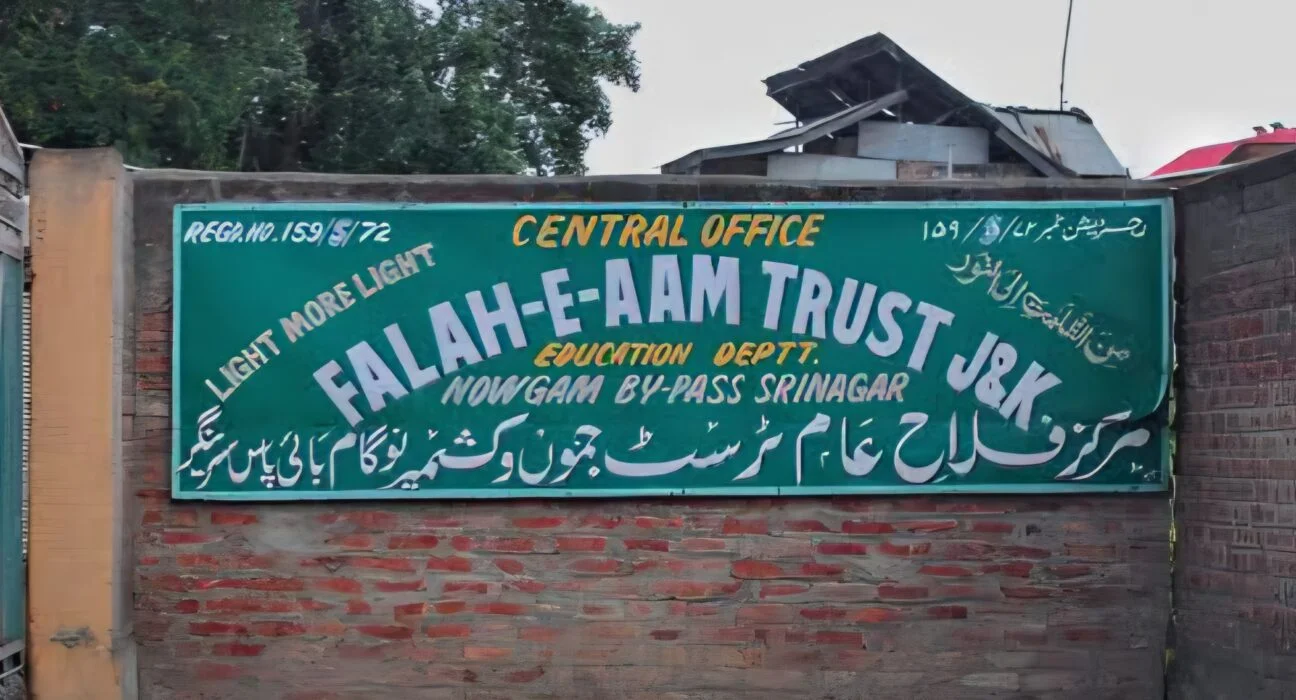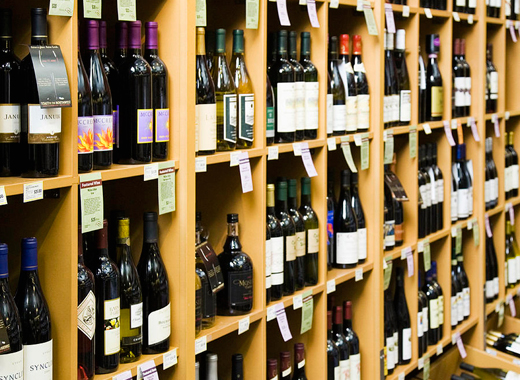J&K Government Takes Over 215 Jamaat-e-Islami-Linked Schools
By: Javid Amin | 22 Aug 2025
Education in the Crossfire of Politics and Policy
Education is often seen as a neutral, noble pursuit, free from politics. Yet in conflict regions like Jammu and Kashmir (J&K), schools are not just places of learning—they are arenas of ideology, influence, and power. The recent decision of the J&K government to take over 215 schools affiliated with the banned Jamaat-e-Islami (JeI) is a historic move that has triggered debates on governance, legality, student welfare, and politics.
According to the official order, these schools—many run under the Falah-e-Aam Trust (FAT), JeI’s educational arm—will now be managed directly under government supervision. With over 55,000 students enrolled, mostly from underprivileged families, the decision affects a large section of Kashmiri society.
This development raises pressing questions:
-
Why now?
-
How will it impact students, parents, and teachers?
-
Is it purely about education reform, or also about political control?
-
What does it mean for the future of private schooling in Kashmir?
Let’s break it down in detail.
Government Order: What Does It Say?
The Official Directive
-
Issued by: Education Secretary Ram Niwas Sharma
-
Legal Framework:
-
Jammu and Kashmir School Education Rules, 2010
-
SRO 292 of 2018
-
SO 177 of 2022
-
-
Action Taken:
-
District Magistrates (Deputy Commissioners) have been asked to assume control of these schools.
-
Verification will be conducted, followed by the appointment of new managing committees.
-
Grounds for Action
The government cited:
-
Expired Managing Committees: Many schools were allegedly functioning without valid governance boards.
-
Intelligence Inputs: Security agencies flagged these schools as directly or indirectly affiliated with Jamaat-e-Islami or FAT.
-
Ban Reinforcement: The Union Home Ministry’s 2019 ban on JeI under the Unlawful Activities (Prevention) Act (UAPA) was reaffirmed in 2024, extending restrictions on its networks.
Key Takeaway
This is not a routine administrative order—it’s a politically charged directive, rooted in both security concerns and educational policy reforms.
Jamaat-e-Islami & Falah-e-Aam Trust: Background
Who is Jamaat-e-Islami?
-
A socio-religious and political organization, Jamaat-e-Islami Jammu and Kashmir was established in 1942.
-
It ran schools, charities, and community programs but was also accused by the Indian state of supporting separatist movements.
-
In 2019, after the Pulwama attack, JeI was banned for alleged “anti-national activities.”
The Falah-e-Aam Trust (FAT)
-
FAT is JeI’s educational arm, running hundreds of schools across Kashmir since the 1970s.
-
Known for affordable tuition, FAT schools catered to rural and low-income families.
-
Many alumni went on to become professionals, teachers, and civil servants.
Critics, however, argue that FAT schools also served as soft-power platforms for Jamaat’s ideology, blending education with religious-political narratives.
Impact on Students: The Human Side
Numbers at Stake
-
Students: 55,000+ enrolled.
-
Teachers & Staff: Thousands employed, many from local communities.
-
Socio-Economic Profile: Majority from economically weaker sections, who could not afford elite private schools.
Concerns Raised
-
Academic Continuity
-
Will students face disruptions in curriculum and exams?
-
Will teachers lose jobs or face scrutiny?
-
-
Cultural Identity
-
Many parents chose these schools because of their religious orientation.
-
Government takeover may alter ethos, raising concerns among conservative families.
-
-
Promises from Government
-
Authorities assured continuity of education under National Education Policy (NEP) guidelines.
-
Fees will remain affordable.
-
Quality will be monitored and standardized.
-
Bottom Line
The real test of this decision lies in whether the student’s classroom experience improves—or suffers.
Regional Distribution of Schools
The order affects schools across Kashmir valley:
-
North Kashmir: 96 schools (Baramulla, Kupwara, Bandipora)
-
South Kashmir: 89 schools (Anantnag, Pulwama, Kulgam, Shopian)
-
Central Kashmir: 30 schools (Budgam, Ganderbal, Srinagar)
This geographic spread shows that FAT schools had a deep grassroots presence, especially in rural belts.
Political Reactions & Controversy
Government’s Stand
Officials defend the move as a security-driven, legal necessity, not a political witch-hunt.
Internal Discord
-
Education Minister Sakina Itoo claimed the order was modified without her consent, hinting at internal disagreements.
Opposition Voices
-
Sajad Lone (People’s Conference): Called the move “undemocratic,” arguing that education should not be politicized.
-
Waheed Parra (PDP): Said the government is “punishing students to settle political scores.”
Public Sentiment
-
Mixed reactions:
-
Some parents welcomed the move, hoping for better facilities and recognition.
-
Others feared cultural dilution and questioned whether it’s an attempt to control narratives in classrooms.
-
The Legal & Policy Angle
The government’s decision rests on three pillars:
-
UAPA Ban on JeI – Prevents any organizational activity linked to JeI.
-
School Education Rules, 2010 – Grants government authority to intervene if management committees are “adversely reported.”
-
SRO 292 (2018) & SO 177 (2022) – Strengthen oversight of private educational institutions.
Critics’ Argument
-
The law allows intervention, but blanket takeover of 215 schools is unprecedented.
-
They argue that due process and consultation with stakeholders were skipped.
Historical Context: Politics of Education in Kashmir
Education in Kashmir has always been a political battleground:
-
Pre-1990s: Religious seminaries and missionary schools competed for influence.
-
1990s Insurgency: Education suffered massively; FAT schools filled the gap in many areas.
-
Post-2019 (Article 370 abrogation): Greater centralization and tighter control over institutions.
The FAT takeover is part of a larger shift—integrating Kashmir’s education into India’s centralized framework while curbing ideologically driven schooling.
Challenges Ahead
-
Administrative Transition
-
Can new committees manage hundreds of schools without chaos?
-
-
Teacher Retention
-
Will teachers suspected of ideological leanings be replaced?
-
Risk of job insecurity.
-
-
Quality Assurance
-
NEP guidelines require modernization—digital classrooms, skill-based learning, etc.
-
Government must invest resources to deliver.
-
-
Community Trust
-
Parents must be reassured that the schools will remain affordable, inclusive, and safe.
-
Comparisons: Similar Moves Elsewhere
-
Pakistan: Madrassas have been taken over or mainstreamed into public education systems.
-
Turkey: Erdogan’s government curbed schools linked to Gulenist movement post-2016 coup attempt.
-
India (other states): Several religious schools have been asked to register under standardized boards.
The Kashmir move is part of a global trend of states regulating ideologically affiliated education.
Bottom-Line: Between Security and Education
The takeover of 215 Jamaat-e-Islami-linked schools in Jammu & Kashmir is more than just an administrative order—it is a political, social, and cultural watershed.
-
For the government, it’s about security, integration, and modernization.
-
For the opposition, it’s about democratic rights, trust, and cultural autonomy.
-
For students and parents, it’s about continuity, affordability, and quality education.
Whether this move strengthens education or politicizes it further will depend on how transparently and effectively the transition is handled. The stakes are high—because in Kashmir, education is not just about classrooms, but about the future identity of an entire generation.




